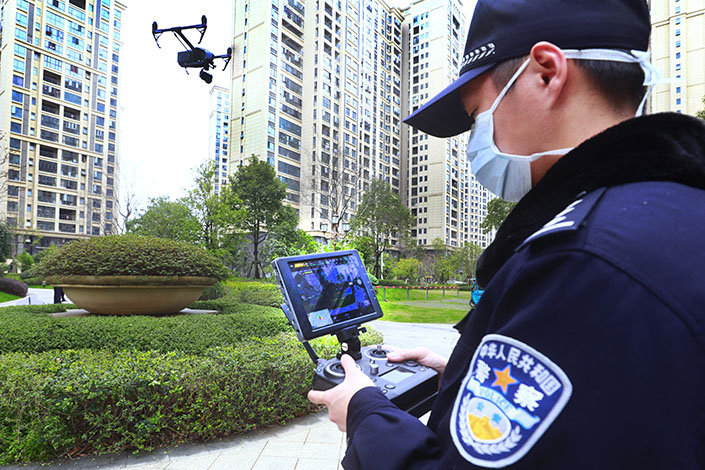China Bars Close Relatives of Police Officers From Running Certain Businesses

The Ministry of Public Security has issued new rules prohibiting family members of a police officer from running certain businesses in the area where the officer is posted, in a bid to regulate business practices and prevent illegal ties between public officials and enterprises.
A document released by the ministry prohibits police officers’ close relatives (link in Chinese), including spouses, children, and children’s spouses, from running business activities that are within the jurisdiction of the public security bureaus where the officers are posted. The rules also prohibit the relatives from engaging in such businesses that may affect strict and impartial law enforcement.
Police officers must not use their posting or their influence to seek preferential treatment or profits for their relatives in business activities, the document said. The document lays out stricter requirements for officers holding more senior roles.
The document comes as the country strengthens regulations governing public officials serving in the justice and law enforcement system. The Supreme People’s Court and the Supreme People’s Procuratorate have issued similar documents prohibiting the close relatives of staff members working in courts and prosecutor’s offices from serving as lawyers or taking up other jobs linked to the judiciary.
In September, the Chinese Communist Party’s central legal and political body has also warned government, law enforcement and court officials against illegally interfering in judicial cases, sharing stories of seven former officials that have been punished for this type of misconduct.
Authorities have been trying to eliminate illegitimate relationships between government officials and enterprises, after many corruption cases were found to involve illegal government-business ties. The country’s top anti-graft agencies, the Central Commission for Discipline Inspection and the National Supervisory Commission, have noted in several articles that inspections have found public officials and their relatives running businesses in violation of regulations in several provinces.
Earlier this year, the eastern city of Hangzhou, home to some of China’s top internet companies, launched a campaign urging nearly 25,000 local officials to conduct self-examination and self-rectification to prevent business-related conflicts of interest and illegal lending, and to regulate their business practices as well as those of their spouses and children.
The document from the Ministry of Public Security urges public security organs across the country to implement the requirements to maintain strict police discipline as “an important political task” and a “key part” of the nationwide inspection of the country’s law enforcement system.
Zhu Mingyong, a criminal lawyer, told Caixin that the document is intended to regulate the exercise of police powers, and ensure rational and standardized law enforcement. Zhu said that it can be difficult for police officers to be independent, objective and impartial if their close relatives are involved in business, with possibilities of hindering investigations and using their power to interfere with financial disputes.
He also noted that the requirements should not take a “one-size-fits-all” approach. “The principle is to not affect the independent exercise of police power and protect the power from any undue influence of economic interests and social relations,” he said.
Qin Qianhong, a law professor at Wuhan University, suggested that there should be more refined details regarding implementation of the requirements in the document.
Zhu also suggested that there should be provisions for corresponding penalties so as to add more teeth to the regulations to make them more effective.
In recent years, several provincial-level regions have issued regulations on business practices of public officials’ spouses, and children and their spouses. Shanghai was the first city to implement such regulations since 2015, with measures requiring annual examination of 20% of the officials who reported that they had no close relatives involved in business activities. Beijing, Chongqing, Guangdong province and the Xinjiang Uyghur autonomous region followed suit in 2016.
Contact reporter Cai Xuejiao (xuejiaocai@caixin.com) and editor Lu Zhenhua (zhenhualu@caixin.com)
Download our app to receive breaking news alerts and read the news on the go.
Get our weekly free Must-Read newsletter.

- PODCAST
- MOST POPULAR






